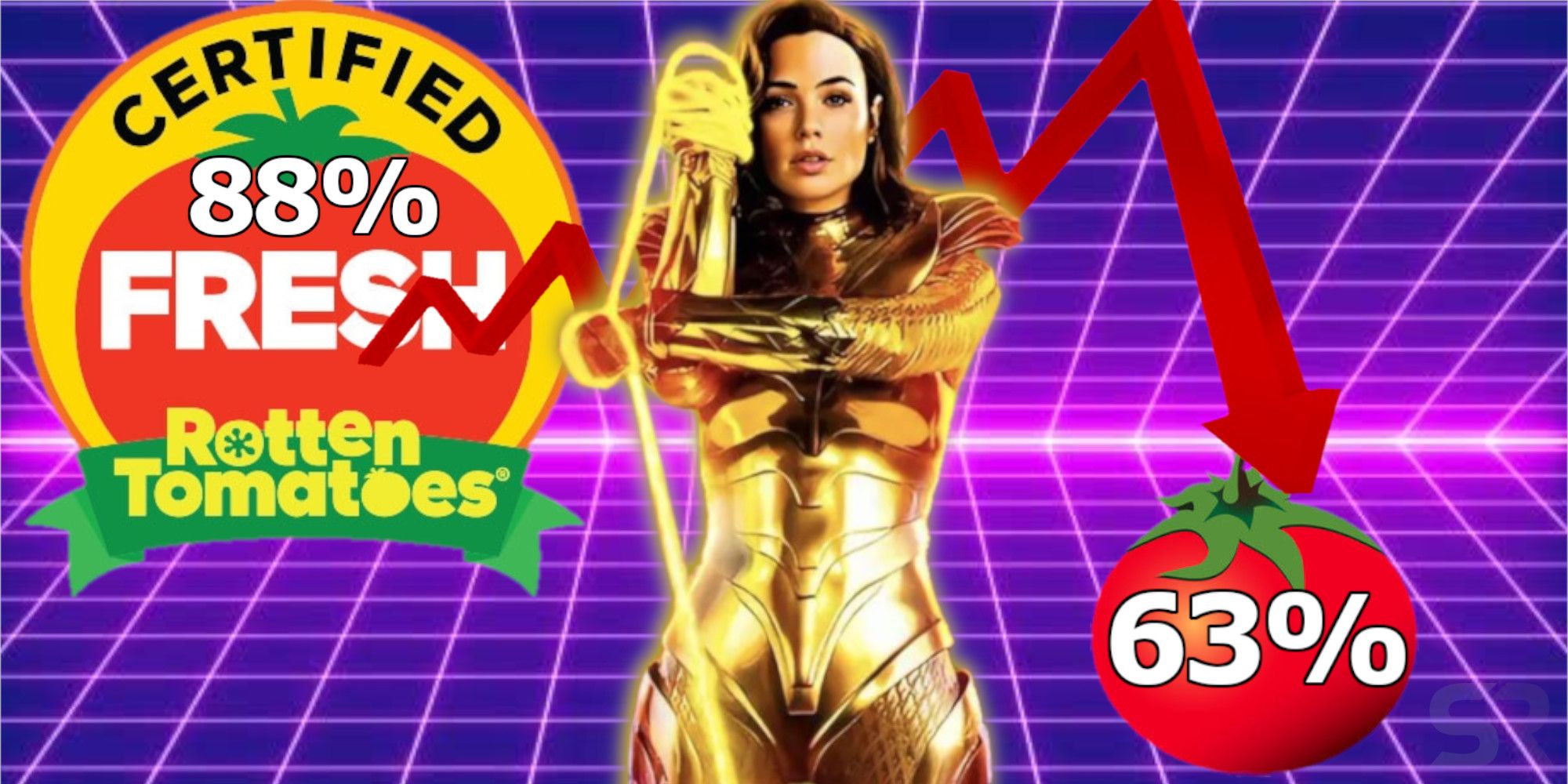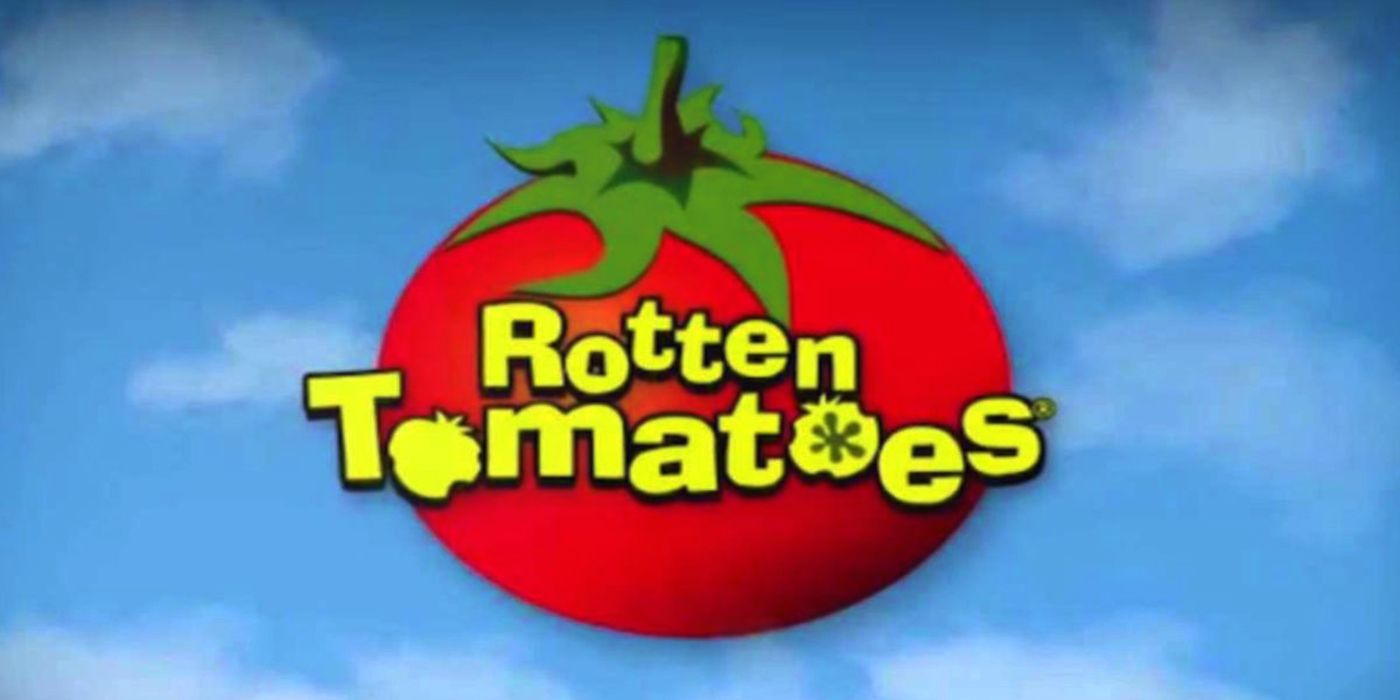Wonder Woman 1984 has had a roller-coaster ride on Rotten Tomatoes, but its score on the aggregator doesn’t actually matter as much as it might seem. The film started off with a very positive rating but later dipped down into “Rotten” territory. It’s since bounced back to barely breach the “Fresh” threshold, but the movie’s score on Rotten Tomatoes should still be taken with a grain of salt.
The problem with any review aggregator is that it only tells one piece of the story. Professional criticisms and fan reception to any film are incredibly subjective, and therefore incredibly complex. That complexity can never be conveyed by one single number. The point of reviews is to give the reasons for a score, not just a judgment of quality. One person might condemn a movie for absurd action, for instance, while another might praise the same film for the same reason. The business of rating films is therefore an incredibly nuanced one – nuance that is necessarily lost in the process of aggregation.
Wonder Woman 1984’s turbulent Tomatometer score is the most notable aggregator dilemma of late, but it certainly isn’t the only one. While many movie fans understand how the site’s aggregation formula works, the end score has understandably become the only important part for a much larger group of viewers. The overall Fresh/Rotten rating has become an overly simplistic and only partially-understood marker of a film’s quality, and it doesn’t matter all that much for films like the divisive Wonder Woman 1984.
How (& Why) Wonder Woman 1984's Rotten Tomatoes Score Has Changed
Leading up to its Christmas Day release in theaters and on HBO Max, Wonder Woman 1984’s Tomatometer score was looking good. Early reviews were generally positive and praised the film’s action, characters, and messages. The score started to slip, though, as more and more reviews came closer to and in the wake of the film’s public release. This isn’t an entirely uncommon phenomenon as more ratings get released, though it did temporarily dip Wonder Woman 1984 into “Rotten” territory.
One of the reasons for Wonder Woman 1984’s early spike in positive reviews can be tied to the film’s higher rating among Rotten Tomatoes’ “Top Critics.” That title is generally reserved for major newspapers, magazines and websites, which are more likely to drop reviews early. Wonder Woman’s divisive current score of 60% rises to 71% when only looking at “Top Critics” reviews – a substantially smaller aggregation than the total number of critical scores. That doesn’t mean the scores of lesser-known publications and sites are inherently less reputable, and it doesn’t mean that all “Top Critics” thought highly of the film. But it does mean that Wonder Woman 1984’s dip in overall rating happened somewhat in conjunction with the review pool becoming less selective - and also less likely to be subconsciously or consciously working for a pull quote.
Why Wonder Woman 1984's Rotten Tomatoes Score Doesn't Matter (Right Now)
The real problem with Wonder Woman 1984’s score, and with all Tomatometer scores, is that it allows for very little nuance in assessing the quality of a film. Many already know how Rotten Tomatoes reaches its scores, but for those who don’t, here is a brief explanation. When a critic uploads a review, they choose whether or not the film is overall “Rotten” (more bad than good) or “Fresh” (more good than bad). This provides a unified quantitative judgment. Rotten Tomatoes then calculates what percentage of the reviews are Fresh, and that percentage becomes the film’s score. If the number is 60% or higher, the movie is Certified Fresh overall. If the number is below 60%, the movie is Certified Rotten.
It’s a very simple system, but it differs from most aggregators in one key way. The Tomatometer is a binary rating – a film is either good or it's bad, no in-between. In a traditional aggregator, all the scores would be averaged. For instance, if a film had received four 5/5 ratings and one 2/5 rating, the average score would be 4.4/5. On Rotten Tomatoes, those same reviews would be seen as 4 Fresh and 1 Rotten, meaning the overall score would be a 4/5 or 80%.
What this means is there are a lot of things the Tomatometer doesn’t take into account. It doesn’t calculate the severity of reviews, for instance. A perfect 10/10 and a 6/10 would both be considered Fresh, and therefore be counted as the same thing. The same goes for a 1/10 and a 4/10. The binary of Fresh/Rotten in the final score presents its own additional problems. The divisive Wonder Woman 1984 is now Certified Fresh at the bare minimum score of 60%. If it were to drop half a percentage point, it would be Rotten again. Any reasonable person would say that the difference between 60% and 59% is nearly nonexistent, but for many moviegoers who only glance at the Rotten Tomatoes page for a film, that tiny change makes an incredible amount of difference.
Essentially, a movie’s Rotten Tomatoes score isn’t nearly as reflective of its critical consensus as it may seem. A film could have all 3/5 reviews and be Certified 100% Fresh, or have perfect scores from half of its critics and mild “Rotten” reviews from the other half, and land at 50%. The Tomatometer certainly has a place as a broad summation of the public response to a film, but it has little to do with the actual details of its critical reception.
Can Rotten Tomatoes Be Fixed?
There’s nothing inherently wrong with Rotten Tomatoes. Aggregator sites have become an important part of consumer engagement with new movies and shows, and Rotten Tomatoes is definitively the king of the field right now. The site provides a distinct look at that general response to new content, albeit one that only tells one piece of the story.
The problem with Rotten Tomatoes is that Tomatometer scores have become so culturally significant that their actual meaning has been warped. Most people only glance at the number and the Fresh/Rotten rating for a movie, which ignores both the faults of the formula and the nuance of individual reviews. It also doesn't help that studios now prominently display "Certified Fresh" messaging in marketing campaigns, further cementing the idea that the binary score is all that matters. The site does have an “average rating” for movies that are based off numerical scores, and some more detailed breakouts like the separate rating for “Top Critics,” but those features are hidden away just enough to be generally ignored. If these more nuanced assessments were front-and-center along with the Tomatometer score, and if it were easier for casual visitors to understand the failings of the formula, movies like Wonder Woman 1984 might not be judged so strictly by a binary rating of Rotten or Fresh.




